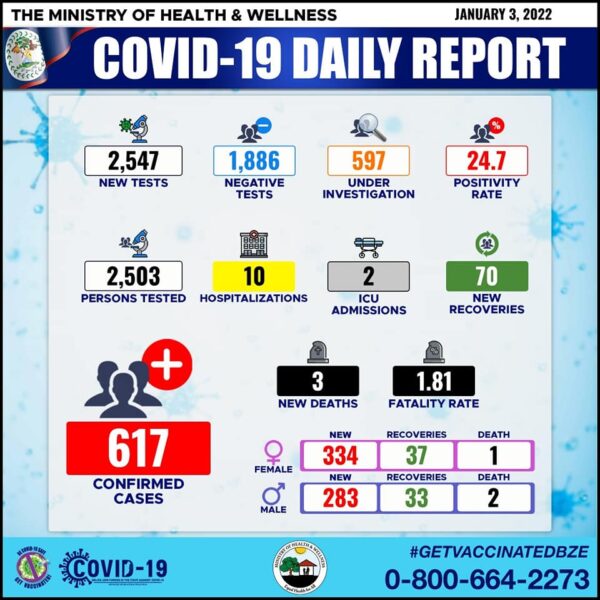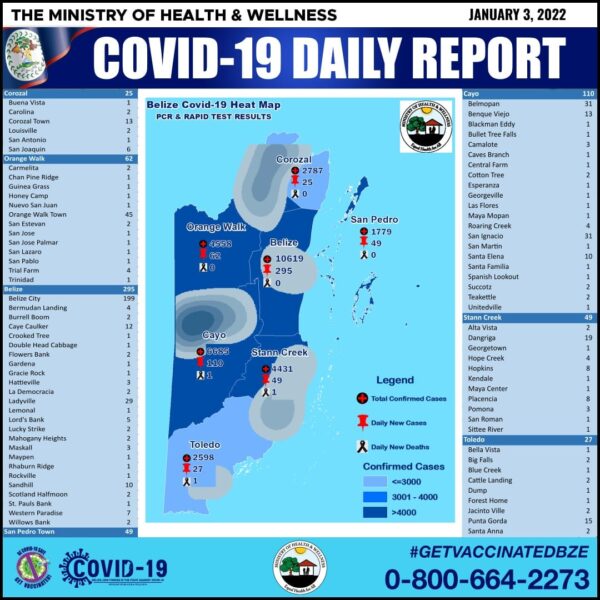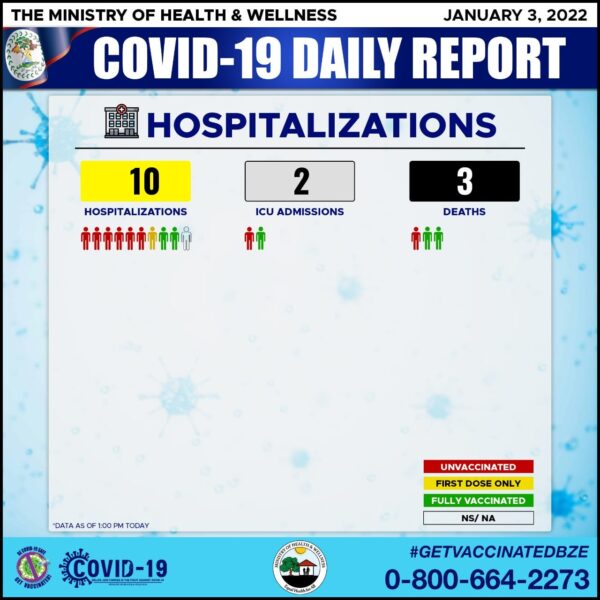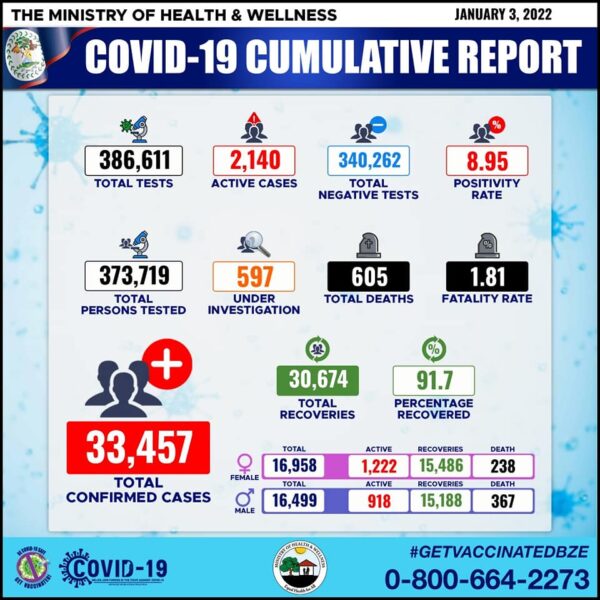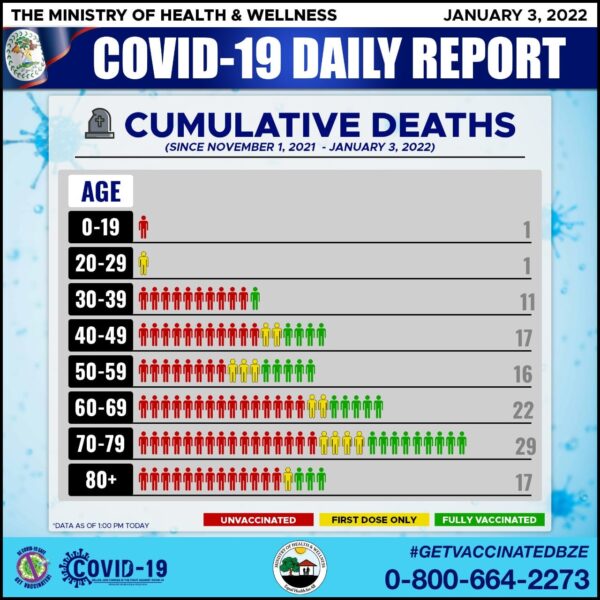Belize, along with the world, heads into a third year of the COVID-19 pandemic with hopes that by the end of 2022, the virus will be a thing of the past. The deadly disease has taken more than 600 lives in Belize since it was detected in March 2020 and has mutated into different variants, destroyed livelihoods, and infected and killed millions worldwide. With the new Omicron variant accused of the rise in infections again, experts said the end of this health crisis depends on how well people adhere to the safety protocols- proper hand hygiene, social distancing, mask-wearing in public places, and vaccination.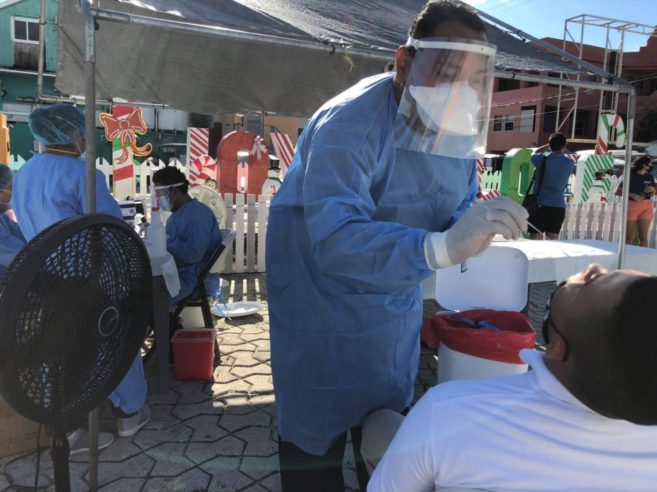
The first case in Belize was detected in March 2020 in San Pedro Town, Ambergris Caye. It triggered a wave of panic, and thousands tried to flee the island. The government quickly locked Ambergris off from the mainland, leaving many stranded. The island was placed under quarantine, and no one could travel to or from the island for some time. La Isla Bonita, the country’s prime tourism destination, became a ghost town with the collapse of the tourism industry. Many islanders came together and formed groups to help those more vulnerable. Until late 2020, tourism slowly started returning to the island, and 2021 was a better year for the industry.
Deaths and infections by COVID-19 in Belize
Meanwhile, infections across the country have fluctuated, and as of December 2021, daily infections are on the rise. The current number of infections is over 32,000, with more than 1,500 active cases. As of December 31st, 602 Belizeans died due to complications caused by COVID-19, with some from Ambergris Caye, particularly in the last months (October and November) of 2021.
Variants detected in Belize
In August 2021, the Government of Belize provided information on the different variants of COVID-19 detected in the country. These included the positive results for the EPILSON variant, Alpha V1, Gamma V3, and the most feared, Delta variant. The Delta strain is reportedly responsible for the increase in infections and deaths. The last version of COVID-19, detected in South Africa, is Omicron. In December 2021, the Ministry of Health and Wellness announced that due to the increase in cases across Belize, they believed the new variant was in the country. The government has anticipated another wave of infections following the Christmas and New Year’s holidays. This new variant is not considered to cause severe symptoms, but it is said to spread faster than previous strains of the virus. Many countries in Europe have reported many Omicron infections, and restrictions for travelers are implemented. In Belize, the government is yet to announce if any restrictions will be put in place.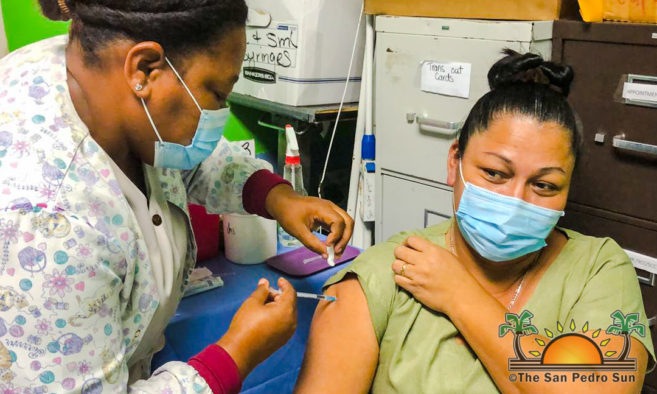
The latest data from the Worldometer regarding COVID-19 infections worldwide shows that over 290 million persons have contracted the disease, and over five million have died. The health crisis started in Wuhan, China, where the first patients were diagnosed in December 2019 with what was once known as the novel coronavirus strain. Doctors first thought it was a cluster of infections related to pneumonia, but the following year, March 11, 2020, the World Health Organization declared the novel coronavirus or COVID-19 a global pandemic.


